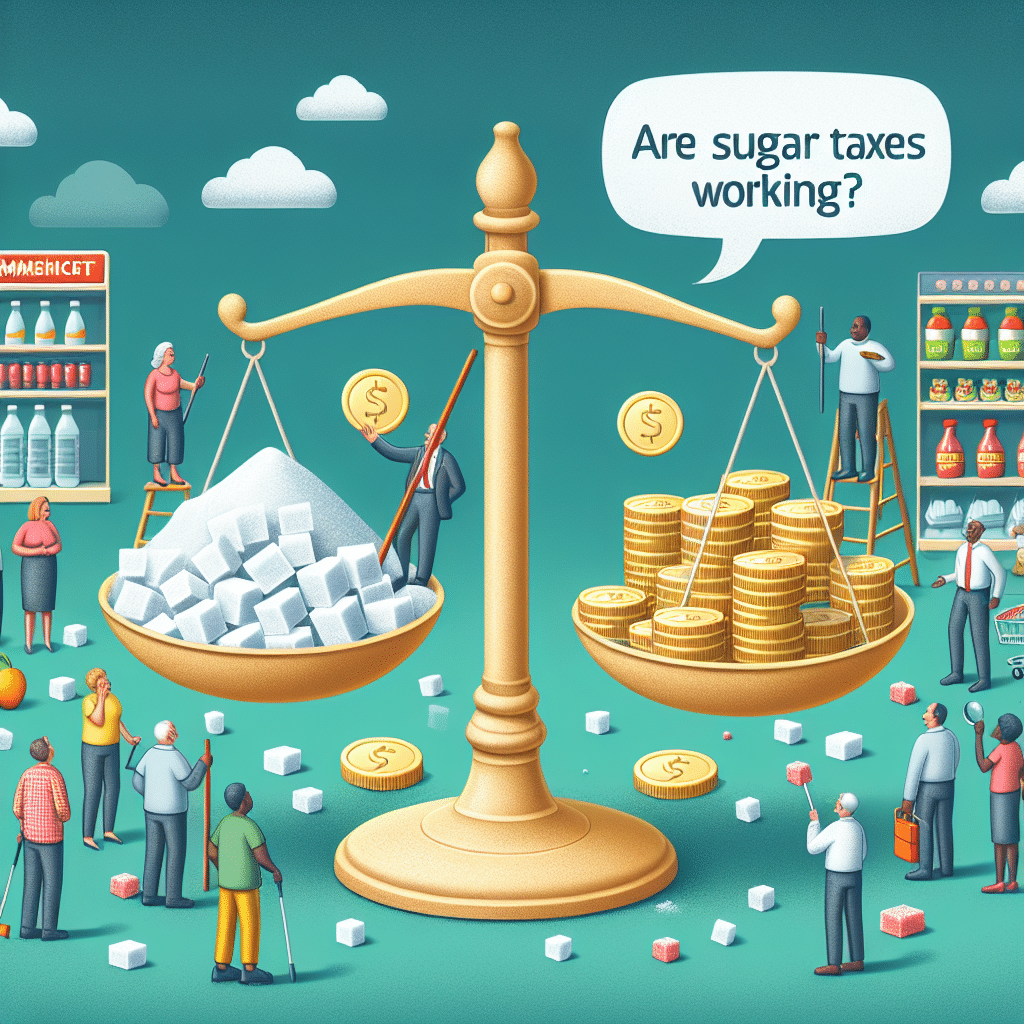Are Sugar Taxes Working?
-
Table of Contents
- Sugar Taxes: An Effective Tool for Healthier Societies?
- The Rationale Behind Sugar Taxes
- Case Studies: Sugar Taxes in Action
- Mexico’s Sugar Tax
- The UK’s Soft Drinks Industry Levy
- Berkeley, California’s Soda Tax
- Arguments Against Sugar Taxes
- Are Sugar Taxes Truly Effective?
- Conclusion: The Sweet Spot of Public Health Policy
- ETChem: Supporting Healthier Lifestyles with Quality Protein Products
Sugar Taxes: An Effective Tool for Healthier Societies?

In recent years, the global battle against obesity and related health issues has led to the implementation of sugar taxes in various countries. These taxes are designed to reduce the consumption of sugary drinks and snacks, which are often linked to health problems such as obesity, diabetes, and heart disease. But are these taxes truly effective in creating healthier populations, or are they just another economic burden on consumers? This article delves into the impact of sugar taxes, examining their effectiveness through case studies and statistics.
The Rationale Behind Sugar Taxes
The primary goal of sugar taxes is to discourage the consumption of sugar-laden products by making them more expensive. The logic is simple: when the price of a product increases, consumers are less likely to purchase it. This is particularly relevant for non-essential items like sugary drinks, which have no nutritional value and contribute to a range of health issues.
- Obesity and related diseases are on the rise globally.
- Sugary drinks are a major contributor to excessive sugar intake.
- Healthcare costs associated with obesity are skyrocketing.
Case Studies: Sugar Taxes in Action
Several countries and cities have implemented sugar taxes with varying degrees of success. Here are some notable examples:
Mexico’s Sugar Tax
In 2014, Mexico introduced a tax on sugary drinks, and the results have been promising. A study published in the British Medical Journal found that the purchase of taxed beverages decreased by an average of 6% in the first year, with a 12% decline by the second year. This suggests that the tax has had a significant impact on consumer behavior in Mexico.
The UK’s Soft Drinks Industry Levy
The UK implemented its version of a sugar tax in 2018, known as the Soft Drinks Industry Levy. It not only led to a reduction in the purchase of high-sugar drinks but also encouraged manufacturers to reformulate their products to contain less sugar. According to Public Health England, there was a 28.8% reduction in sugar per 100ml in drinks subject to the levy between 2015 and 2018.
Berkeley, California’s Soda Tax
Berkeley was the first city in the United States to pass a soda tax in 2014. A study in the American Journal of Public Health reported a 21% drop in the consumption of sugary drinks in low-income neighborhoods within the city. Meanwhile, water consumption increased by 63%, indicating a positive shift in drinking habits.
Arguments Against Sugar Taxes
Despite these successes, sugar taxes have their critics. Opponents argue that:
- Sugar taxes are regressive and disproportionately affect low-income families.
- They can lead to job losses in the beverage industry.
- Consumers may switch to other unhealthy products, negating the health benefits.
Are Sugar Taxes Truly Effective?
The effectiveness of sugar taxes can be measured in terms of reduced consumption of sugary products, improved public health outcomes, and increased awareness about the dangers of excessive sugar intake. While the case studies show promising results, it is important to consider long-term effects and the need for comprehensive strategies that include education and access to healthier alternatives.
Conclusion: The Sweet Spot of Public Health Policy
Sugar taxes are not a silver bullet, but they can be a valuable component of a multifaceted approach to public health. When combined with other measures such as public education campaigns, subsidies for healthy foods, and regulations on advertising, sugar taxes can contribute to a significant reduction in sugar consumption and related health issues. The key is to find the right balance that promotes healthier choices without placing an undue burden on consumers, especially those with lower incomes.
ETChem: Supporting Healthier Lifestyles with Quality Protein Products
While reducing sugar intake is crucial for a healthier lifestyle, it’s also important to focus on consuming the right nutrients. ETChem offers a range of high-quality protein products that can help support a balanced diet. Their extensive selection of collagens, including marine, fish, bovine, and chicken collagen, provides consumers with various options to meet their dietary needs. Whether you’re looking to improve your skin health, strengthen your joints, or simply add a high-quality protein source to your diet, ETChem has a solution for you.
About ETChem:
ETChem, a reputable Chinese Collagen factory manufacturer and supplier, is renowned for producing, stocking, exporting, and delivering the highest quality collagens. They include marine collagen, fish collagen, bovine collagen, chicken collagen, type I collagen, type II collagen and type III collagen etc. Their offerings, characterized by a neutral taste, instant solubility attributes, cater to a diverse range of industries. They serve nutraceutical, pharmaceutical, cosmeceutical, veterinary, as well as food and beverage finished product distributors, traders, and manufacturers across Europe, USA, Canada, Australia, Thailand, Japan, Korea, Brazil, and Chile, among others.
ETChem specialization includes exporting and delivering tailor-made collagen powder and finished collagen nutritional supplements. Their extensive product range covers sectors like Food and Beverage, Sports Nutrition, Weight Management, Dietary Supplements, Health and Wellness Products, ensuring comprehensive solutions to meet all your protein needs.
As a trusted company by leading global food and beverage brands and Fortune 500 companies, ETChem reinforces China’s reputation in the global arena. For more information or to sample their products, please contact them and email karen(at)et-chem.com today.




